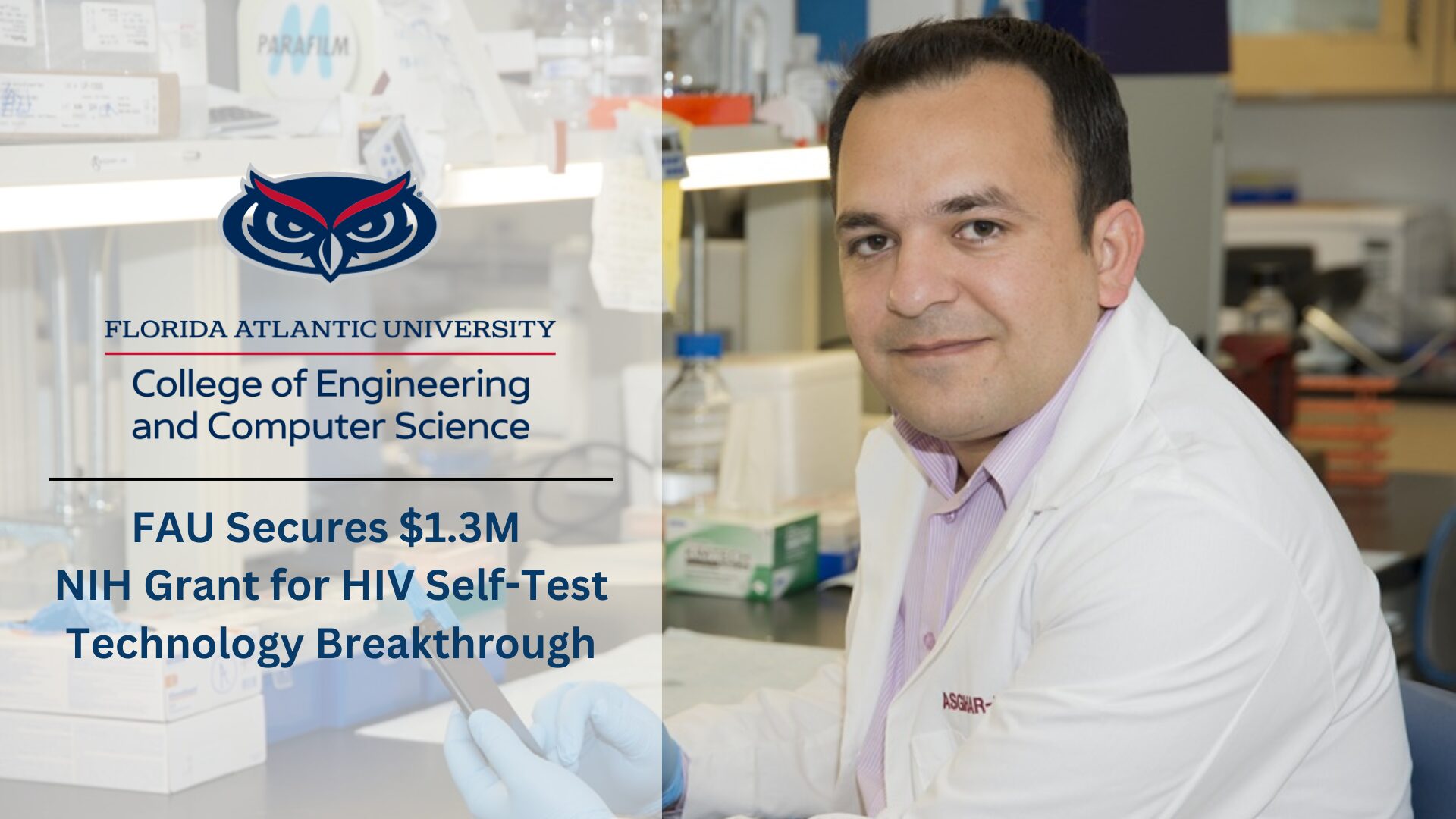 As the global HIV epidemic continues to affect nearly 40 million people worldwide, including 1.2 million in the United States, researchers at Florida Atlantic University (FAU) are leading a groundbreaking initiative to revolutionize HIV detection and management. A team from FAU’s College of Engineering and Computer Science and the Charles E. Schmidt College of Medicine has been awarded phase II of a five-year, $1.3 million grant from the National Institute of Allergy and Infectious Diseases, part of the National Institutes of Health (NIH).
As the global HIV epidemic continues to affect nearly 40 million people worldwide, including 1.2 million in the United States, researchers at Florida Atlantic University (FAU) are leading a groundbreaking initiative to revolutionize HIV detection and management. A team from FAU’s College of Engineering and Computer Science and the Charles E. Schmidt College of Medicine has been awarded phase II of a five-year, $1.3 million grant from the National Institute of Allergy and Infectious Diseases, part of the National Institutes of Health (NIH).
The grant will support the development of a novel, low-cost disposable microchip that enables rapid and accurate HIV-1 self-testing—especially during the first two weeks after infection (the acute phase) and in individuals on antiretroviral therapy (ART) experiencing viral rebound.
“Nearly 40% of people infected with HIV are not on suppressive treatment, despite first-line antiretroviral therapy being affordable or even freely available,” said Dr. Waseem Asghar, principal investigator, a professor and associate chair in FAU’s Department of Electrical Engineering and Computer Science and Department of Biomedical Engineering.
“This is largely due to the lack of easy-to-use HIV diagnostics for self-testing. What’s needed is a low-cost, accessible platform for HIV testing that can improve diagnosis during the acute phase of infection, help identify treatment failure and enhance disease management to better control disease progression.”
Unlike existing HIV tests—which can cost between $50 and $200 and often require specialized laboratory equipment and technicians—the FAU-developed device is expected to cost under $5 per test. Designed as a fully automated, handheld platform, the device will deliver results within 40 minutes using a simple whole blood sample, with no need for refrigeration or clinical infrastructure.
The technology leverages cutting-edge advancements in microchip fabrication, microfluidics, isothermal amplification, imaging, and microelectronics. It will allow individuals to detect HIV during the acute infection phase or identify viral rebound, reducing the risk of undetected transmission and improving treatment outcomes.
“This innovation represents a game changer in HIV detection, especially in resource-limited settings,” said Dr. Stella Batalama, dean of the College of Engineering and Computer Science. “By empowering individuals with accessible self-testing tools, we are taking a major step toward controlling HIV spread, improving care, and ultimately saving lives.”
The device is being developed by a collaborative team including co-investigator Massimo Caputi, Ph.D., professor in FAU’s Department of Biomedical Science, along with external clinical experts Una O’Doherty, M.D., Ph.D., professor of pathology and laboratory medicine at Emory University, and Patrick E. Jackson, M.D., assistant professor of infectious diseases at the University of Virginia.
In addition to HIV, the technology has broader applications for detecting other infectious diseases, including flaviviruses, hepatitis, tuberculosis, malaria, and SARS-CoV-2—paving the way for a new era of point-of-care diagnostics.
For more information about this research initiative or to schedule interviews with project leaders, please contact:



